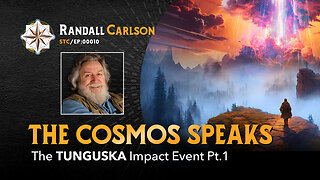Audiobook: Revolt Against the Modern World by Julius Evola, Part One, Chapter 19
Chapter 19: Space, Time, the Earth
In this chapter, Evola explores the traditional perspectives on space and time, contrasting them with modern views. He argues that traditional man experienced space and time qualitatively, not just quantitatively. Time was seen as cyclical, with each moment holding its own unique significance and value, unlike the linear, homogeneous perception of modern times. Similarly, space was viewed as alive and infused with qualities and intensities, connected to the divine and the sacred. This chapter delves into how these perceptions shaped rituals, calendars, and the overall worldview of ancient civilizations, emphasizing the integration of cosmic and human rhythms.
Footnotes:
1. Hubert-Mauss, Mflange d'histoire religieuse, 207. According to the Chaldeans, the universe’s eternity was divided into a series of “great years” in which the same events keep on recurring, just like winter and summer keep on recurring every “small year." If some time periods were sometimes personified as divinities or as divinities' organs, this was yet another expression of the idea of the cycle as an organic unity.
2. "The durations of traditional time may be compared to numbers that in turn are regarded as the enumeration of lower unities or as sums capable of serving as units for the composition of higher numbers. Continuity is given to them by the mental operation that synthesizes their elements." Ibid., 202.
3. This idea is reflected in the Hindu view according to which a year on the earth corresponds to a day for some lesser gods; while a year of these gods' lives corresponds to a day for gods occupying a higher hierarchical level, until we reach the days and nights of Brahman, which express the cyclical unfolding of the cosmic manifestation. See The Laws of Manu 1.64-74. In the same text it is written that these cycles are repeated by the Supreme Lord "as if he were playing"; this expresses the irrelevance and the antihistoricity of the repetition in comparison to the immutable and eternal element that is manifested in it. We may also recall the biblical saying: "For a thousand years in your sight are as yesterday, now that it is past....” Ps. 90:4.
4. Emperor Julian, Hymn to King Helios, 148c.
5. From a traditional point of view, great reservations should be expressed about the theory of H. Wirth concerning a sacred series derived in primordial times from the astral movement of the sun as "god-year"; this series, according to Wirth, was the basis for the measurement of time, for the signs and for the roots of a common prehistoric language and also for meanings related to the cult.
6. The number twelve, characterizing the signs of the zodiac, which correspond to the Hindu Mitya, appears in the number of chapters of The Laws of Manu; in the twelve great Namshan of the circular council of the Dalai Lama; in the twelve disciples of Lao-tzu (originally two, who in turn initiated another ten); in the number of the priests of several Roman collegia (such as the Arvali and the Salii); in the number of the ancilia established by Numa in return for the sign of the heavenly protection he received (twelve is also the number of vultures that gave to Romulus rather than Remus the right to give his name to the city; twelve were also the lictorians instituted by Romulus), and in the altars dedicated to Janus; in the twelve disciples of Christ and in the twelve gates of the heavenly Jerusalem; in the twelve great Hellenic and Roman deities; in the twelve judges of the Egyptian Book of the Dead; in the twelve jasper towers built on the Taoist sacred mountain named Kuen-Lun; in the twelve main Aesir and their corresponding dwellings or thrones in the Nordic tradition; in the twelve labors of Heracles; in the number of days of Sjegfried's journey and in twelve kings subjected to him; in the twelve main knights sitting at King Arthur’s Round Table; and in the twelve palatines of Charlemagne. The list could go on and on.
Traditionally the number seven refers to rhythms of development, of formation and of fulfillment in man, the cosmos, and the spirit. As far as the spiritual dimension is concerned, see the seven trials found in many initiations; the seven deeds of Rostan; the seven days Buddha spent under the “bodhi tree”; the seven cycles of seven days each necessary to learn the doctrine, according to some Buddhist traditions. While the days of biblical "creation" were believed to be seven, these “days" corresponded to the millennia of the Iranian-Chaldean traditions; these millennia were cycles, the last of which was considered a cycle of "consummation,” that is, of fulfillment and resolution or destruction in a solar sense. See R. Guinon, Le Symbolisme de la croix. Thus the week corresponds to the great hebdomadary of the ages of the world, just as the solar year corresponds to the cosmic “great year.” There are also many references to the development and duration of some civilizations, such as the six saecula of life attributed to the Roman world, the seventh being the saeculum of its demise; the number of the first kings of Rome; the ages of the first Manus of the present cycle according to the Hindu tradition, and so on.
7. Concerning this future, see the characteristic expressions of Macrobius, Saturnalia, 1.15.
8. Such a plane should not be confused with the magical plane, although the latter, in the last analysis, presupposes an order of knowledge deriving more or less directly from the former. A separate group consists of those rites and those celebrations, which despite their cyclical character, do not find real correspondences in nature but are rather originated by fatal events connected to a given race.
9. R. Guinon, Le Symbolisme de la croix. Also J. Evola, The Hermetic Tradition.
10. This should refer mainly to civilizations of a higher kind. When talking about the earth, I will mention the existence of an opposite orientation in the primitive connections between man and earth.
11. M. Eliade, Manuel d'histoire des religions (Paris 1949), 345; see The Myth of the Eternal Return (Princeton, 1954). Eliade correctly remarked that at the time of the expansion of the Christian ecumene, to raise or plant a cross (today this is done with a flag) in every new country added to this ecumene.
12. M. Guizot, Essais sur 1'histoire de France (Paris, 1868).
---
1. Audiobook: Revolt Against the Modern World by Julius Evola, Foreword (https://rumble.com/v4zm5tq-audiobook-revolt-against-the-modern-world-by-julius-evola-forward.html)
2. Audiobook: Revolt Against the Modern World by Julius Evola, Part One, Chapter 1, The Beginning (https://rumble.com/v4zmraf-audiobook-revolt-against-the-modern-world-by-julius-evola-part-one-chapter-.html)
3. Audiobook: Revolt Against the Modern World by Julius Evola, Part One, Chapter 2, Regality (https://rumble.com/v4zq2nw-audiobook-revolt-against-the-modern-world-by-julius-evola-part-one-chapter-.html)
4. Audiobook: Revolt Against the Modern World by Julius Evola, Part One, Chapter 3, Polar Symbolism (https://rumble.com/v4zr566-audiobook-revolt-against-the-modern-world-by-julius-evola-part-one-chapter-.html)
5. Audiobook: Revolt Against the Modern World by Julius Evola, Part One, Chapter 4, The Law, The State, The Empire (https://rumble.com/v4zshwr-audiobook-revolt-against-the-modern-world-by-julius-evola-part-one-chapter-.html)
6. Audiobook: Revolt Against the Modern World by Julius Evola, Part One, Chapter 5, The Mystery of the Rite (https://rumble.com/v4zv075-audiobook-revolt-against-the-modern-world-by-julius-evola-part-one-chapter-.html)
7. Audiobook: Revolt Against the Modern World by Julius Evola, Part One, Chapter 6, On the Primordial Nature of the Patriciate (https://rumble.com/v4zydz5-audiobook-revolt-against-the-modern-world-by-julius-evola-part-one-chapter-.html)
8. Audiobook: Revolt Against the Modern World by Julius Evola, Part One, Chapter 7, Spiritual Virility (https://rumble.com/v500py2-audiobook-revolt-against-the-modern-world-by-julius-evola-part-one-chapter-.html)
9. Audiobook: Revolt Against the Modern World by Julius Evola, Part One, Chapter 8, The Two Paths in the Afterlife (https://rumble.com/v50556i-audiobook-revolt-against-the-modern-world-by-julius-evola-part-one-chapter-.html)
10. Audiobook: Revolt Against the Modern World by Julius Evola, Part One, Chapter 9, Life and Death of Civilizations (https://rumble.com/v50aqwt-audiobook-revolt-against-the-modern-world-by-julius-evola-part-one-chapter-.html)
11. Audiobook: Revolt Against the Modern World by Julius Evola, Part One, Chapter 10, Initiation and Consecration (https://rumble.com/v50kzgb-audiobook-revolt-against-the-modern-world-by-julius-evola-part-one-chapter-.html)
12. Audiobook: Revolt Against the Modern World by Julius Evola, Part One, Chapter 11, On the Hierarchical Relationship Between Royalty and Priesthood (https://rumble.com/v50rmrr-monetized-audiobook-revolt-against-the-modern-world-by-julius-evola-part-on.html)
13. Audiobook: Revolt Against the Modern World by Julius Evola, Part One, Chapter 12, Universality and Centralism (https://rumble.com/v50sybe-audiobook-revolt-against-the-modern-world-by-julius-evola-part-one-chapter-.html)
14. Audiobook: Revolt Against the Modern World by Julius Evola, Part One, Chapter 13, The Soul of Chivalry (https://rumble.com/v51anjl-audiobook-revolt-against-the-modern-world-by-julius-evola-part-one-chapter-.html)
15. Audiobook: Revolt Against the Modern World by Julius Evola, Part One, Chapter 14, The Doctrine of the Castes (https://rumble.com/v51o38z-audiobook-revolt-against-the-modern-world-by-julius-evola-part-one-chapter-.html)
16. Audiobook: Revolt Against the Modern World by Julius Evola, Part One, Chapter 15, Professional Associations and the Arts; Slavery (https://rumble.com/v525v94-audiobook-revolt-against-the-modern-world-by-julius-evola-part-one-chapter-.html)
17. Audiobook: Revolt Against the Modern World by Julius Evola, Part One, Chapter 16, Bipartition of the Traditional Spirit; Asceticism (https://rumble.com/v525zx1-audiobook-revolt-against-the-modern-world-by-julius-evola-part-one-chapter-.html)
18. Audiobook: Revolt Against the Modern World by Julius Evola, Part One, Chapter 17, The Greater and the Lesser Holy War (https://rumble.com/v526gxc-audiobook-revolt-against-the-modern-world-by-julius-evola-part-one-chapter-.html)
19. Audiobook: Revolt Against the Modern World by Julius Evola, Part One, Chapter 18, Games and Victory (https://rumble.com/v5272gy-audiobook-revolt-against-the-modern-world-by-julius-evola-part-one-chapter-.html)
20. Audiobook: Revolt Against the Modern World by Julius Evola, Part One, Chapter 19, Space, Time, the Earth (https://rumble.com/v52ee4o-audiobook-revolt-against-the-modern-world-by-julius-evola-part-one-chapter-.html)
21. Audiobook: Revolt Against the Modern World by Julius Evola, Part One, Chapter 20, Man and Woman (https://rumble.com/v52etn8-audiobook-revolt-against-the-modern-world-by-julius-evola-part-one-chapter-.html)
22. Audiobook: Revolt Against the Modern World by Julius Evola, Part One, Chapter 21, The Decline of Superior Races (https://rumble.com/v52f2wz-audiobook-revolt-against-the-modern-world-by-julius-evola-part-one-chapter-.html)
23. Audiobook: Revolt Against the Modern World by Julius Evola, Part Two, Genesis and Face of the Modern World, Introduction (https://rumble.com/v52j35f-audiobook-revolt-against-the-modern-world-by-julius-evola-part-two-introduc.html)
24. Audiobook: Revolt Against the Modern World by Julius Evola, Part Two, Chapter 22, The Doctrine of the Four Ages (https://rumble.com/v52jgnv-audiobook-revolt-against-the-modern-world-by-julius-evola-part-two-chapter-.html)
25. Audiobook: Revolt Against the Modern World by Julius Evola, Part Two, Chapter 23, The Golden Age (https://rumble.com/v52k2of-audiobook-revolt-against-the-modern-world-by-julius-evola-part-two-chapter-.html)
26. Audiobook: Revolt Against the Modern World by Julius Evola, Part Two, Chapter 24, The Pole and the Hyperborean Region (https://rumble.com/v52l5fs-audiobook-revolt-against-the-modern-world-by-julius-evola-part-two-chapter-.html)
27. Audiobook: Revolt Against the Modern World by Julius Evola, Part Two, Chapter 25, The Northern-Atlantic Cycle (https://rumble.com/v52lmre-audiobook-revolt-against-the-modern-world-by-julius-evola-part-two-chapter-.html)
28. Audiobook: Revolt Against the Modern World by Julius Evola, Part Two, Chapter 26, North and South (https://rumble.com/v52qht7-audiobook-revolt-against-the-modern-world-by-julius-evola-part-two-chapter-.html)
29. Audiobook: Revolt Against the Modern World by Julius Evola, Part Two, Chapter 27, The Civilization of the Mother (https://rumble.com/v52s4qq-audiobook-revolt-against-the-modern-world-by-julius-evola-part-two-chapter-.html)
30. Audiobook: Revolt Against the Modern World by Julius Evola, Part Two, Chapter 28, The Cycles of Decadence and the Heroic Cycle (https://rumble.com/v52ssg7-audiobook-revolt-against-the-modern-world-by-julius-evola-part-two-chapter-.html)
31. Audiobook: Revolt Against the Modern World by Julius Evola, Part Two, Chapter 29, Part 1, THE AMERICAN CYCLE AND THE EASTERN MEDITERRANEAN CYCLE (https://rumble.com/v52wwp5-audiobook-revolt-against-the-modern-world-by-julius-evola-part-two-chapter-.html)
32. Audiobook: Revolt Against the Modern World by Julius Evola, Part Two, Chapter 29, Part 2, THE HEBREW CYCLE AND THE EASTERN ARYAN CYCLE (https://rumble.com/v52xk3d-audiobook-revolt-against-the-modern-world-by-julius-evola-part-two-chapter-.html)
33. Audiobook: Revolt Against the Modern World by Julius Evola, Part Two, Chapter 30: The Heroic-Uranian Western Cycle, Part 1 (https://rumble.com/v52zblu-audiobook-revolt-against-the-modern-world-by-julius-evola-part-two-chapter-.html)
34. Audiobook: Revolt Against the Modern World by Julius Evola, Part Two, Chapter 30: The Heroic-Uranian Western Cycle, Part 2 (https://rumble.com/v52zn03-audiobook-revolt-against-the-modern-world-by-julius-evola-part-two-chapter-.html)
35. Audiobook: Revolt Against the Modern World by Julius Evola, Part Two, Chapter 31, Syncope of the Western Tradition (https://rumble.com/v533fax-audiobook-revolt-against-the-modern-world-by-julius-evola-part-two-chapter-.html)
36. Audiobook: Revolt Against the Modern World by Julius Evola, Part Two, Chapter 32, The Revival of the Empire and the Ghibelline Middle Ages (https://rumble.com/v533vya-audiobook-revolt-against-the-modern-world-by-julius-evola-part-two-chapter-.html)
37. Audiobook: Revolt Against the Modern World by Julius Evola, Part Two, Chapter 33, Decline of the Medieval World and the Birth of Nations (https://rumble.com/v5346cg-audiobook-revolt-against-the-modern-world-by-julius-evola-part-two-chapter-.html)
38. Audiobook: Revolt Against the Modern World by Julius Evola, Part Two, Chapter 34, Unrealism and Individualism (https://rumble.com/v535jkt-audiobook-revolt-against-the-modern-world-by-julius-evola-part-two-chapter-.html)
39. Audiobook: Revolt Against the Modern World by Julius Evola, Part Two, Chapter 35, The Regression of the Castes (https://rumble.com/v535tox-audiobook-revolt-against-the-modern-world-by-julius-evola-part-two-chapter-.html)
40. Audiobook: Revolt Against the Modern World by Julius Evola, Part Two, Chapter 36, Nationalism and Collectivism (https://rumble.com/v53bwd2-audiobook-revolt-against-the-modern-world-by-julius-evola-part-two-chapter-.html)
41. Audiobook: Revolt Against the Modern World by Julius Evola, Part Two, Chapter 37, The End of the Cycle (https://rumble.com/v53c5ag-audiobook-revolt-against-the-modern-world-by-julius-evola-part-two-chapter-.html)
42. Audiobook: Revolt Against the Modern World by Julius Evola, Conclusion (https://rumble.com/v53hjf7-audiobook-revolt-against-the-modern-world-by-julius-evola-conclusion.html)
-
 43:19
43:19
Stephen Gardner
2 hours ago🔴BREAKING: Biden is a TRAIN WRECK! Obama WANTS him GONE!!
11.2K62 -
 LIVE
LIVE
FusedAegisTV
6 hours agoDid I Crash Servers?! Wonderous Tails XP Farming | Final Fantasy XIV 7.0 Early Access Day 3
3,288 watching -
 1:43:48
1:43:48
Bright Insight
1 day agoWhat You Must Know about Graham Hancock/Flint Dibble Debate (w/ @DeDunking)
93.5K83 -
 47:41
47:41
Digital Social Hour
9 hours agoLiving Longer and Healthier with Gary Brecka | Digital Social Hour
18.3K10 -
 19:52
19:52
The Nima Yamini Show
7 hours agoLondon Unites: Massive March Against Biased Policing
14.3K8 -
 41:30
41:30
Standpoint with Gabe Groisman
9 hours agoEp. 33. Protecting Biblical Israel. Governor and Yesha Council Chair, Israel Ganz
33.3K69 -
 1:06:18
1:06:18
Sports Wars
8 hours agoLakers Give In And Draft Lebron James' Son Bronny, Woke Nike IMPLODES, LGBTQ Activists Are FURIOUS
47.2K36 -
 2:10:26
2:10:26
Roseanne Barr
3 days ago $85.81 earnedDanger Close with Patrick Byrne Part 2 | The Roseanne Barr Podcast #54
191K245 -
 37:25
37:25
Squaring The Circle w/ Randall Carlson
1 day ago#010 The Cosmos Speaks: The Tunguska Event Pt.1 - Squaring the Circle: A Randall Carlson Podcast
63.7K27 -
 3:15
3:15
scoutthedoggie
1 day agoAirsoft Sniper Silverback TAC-41
75K10